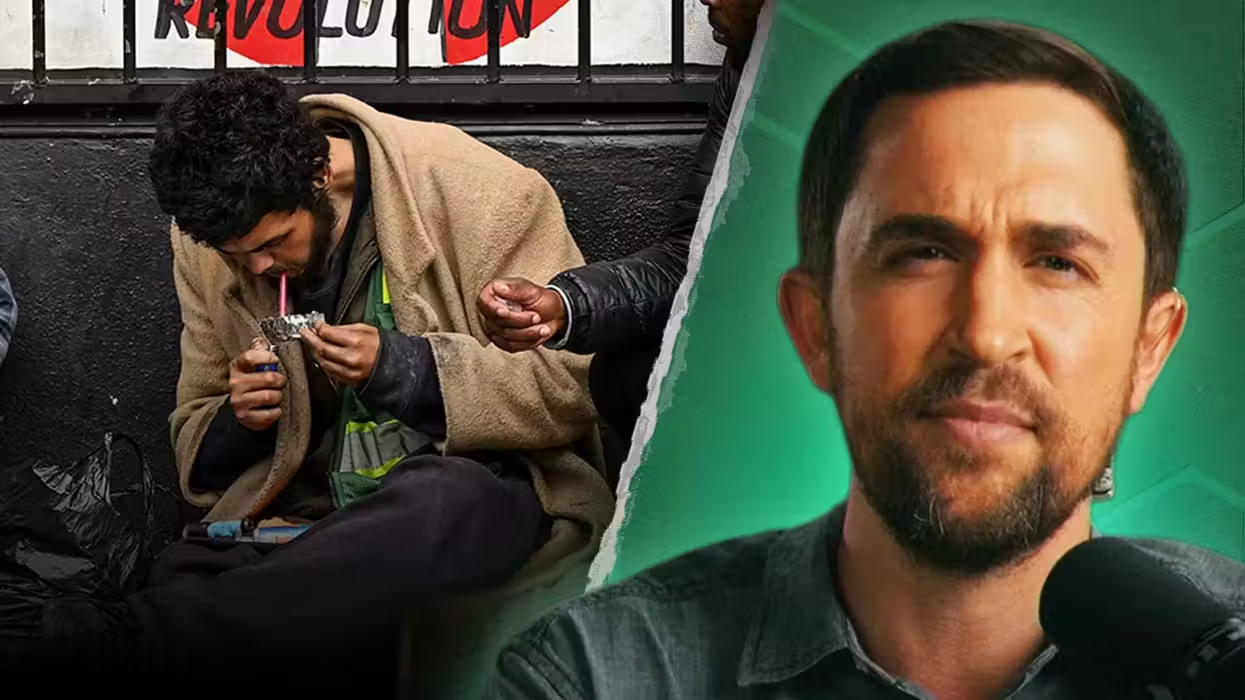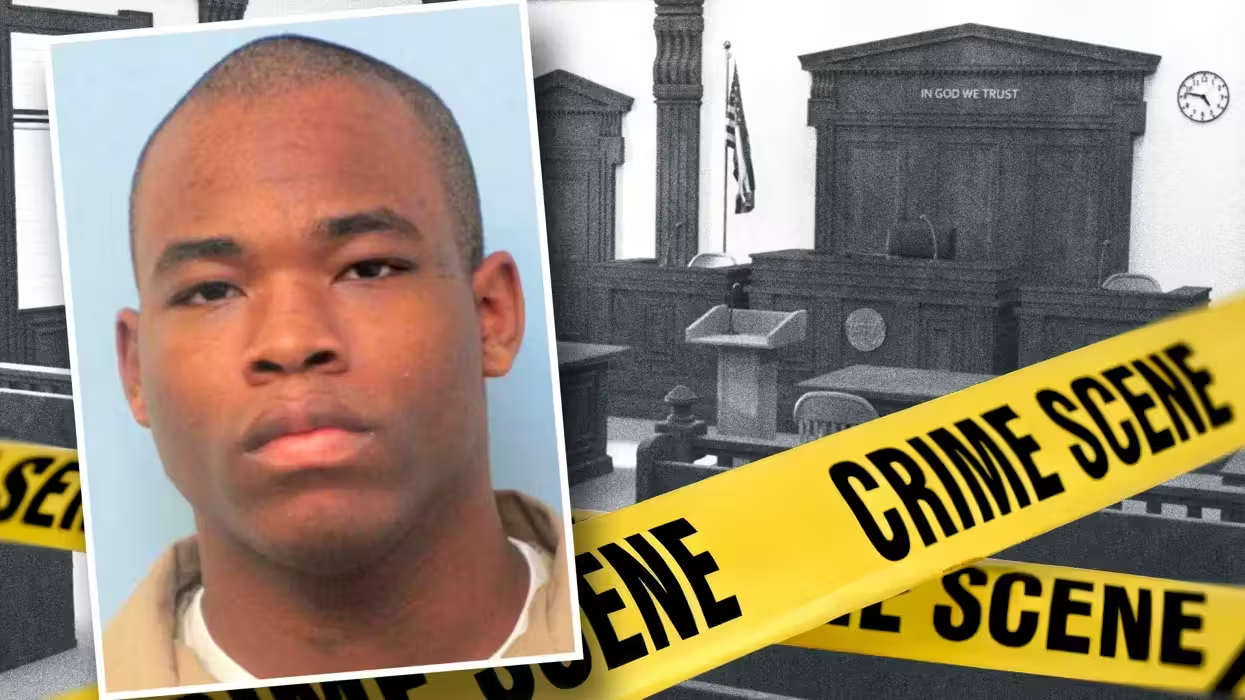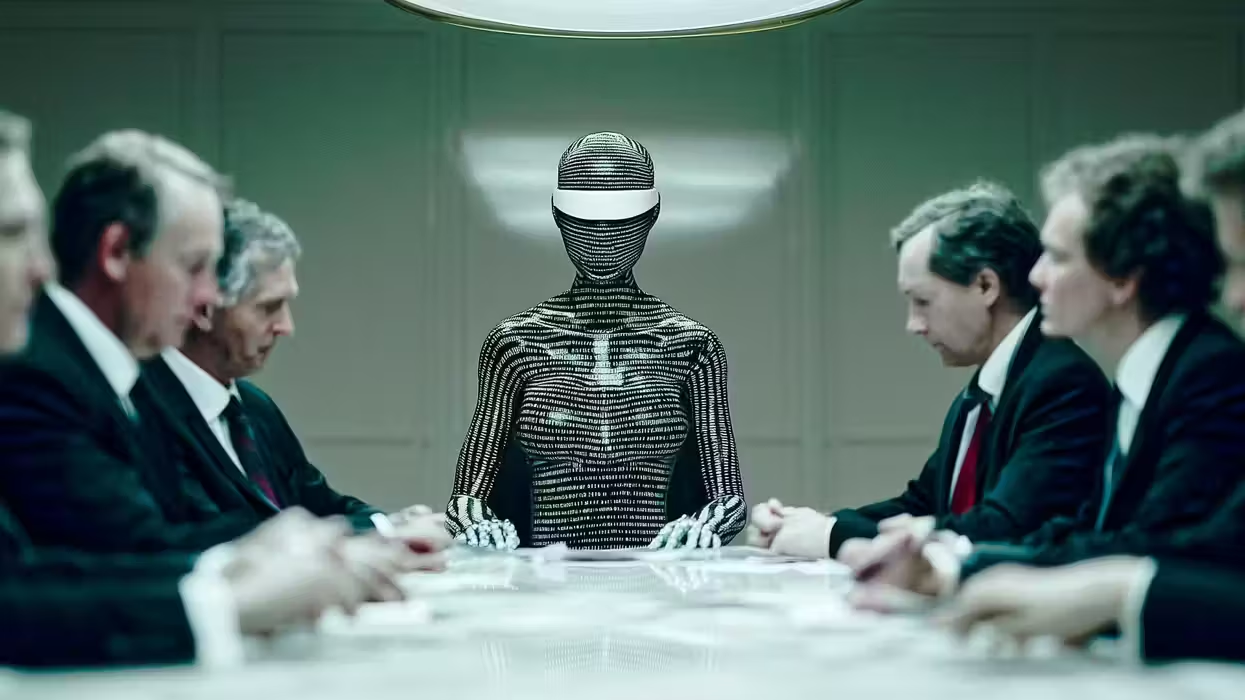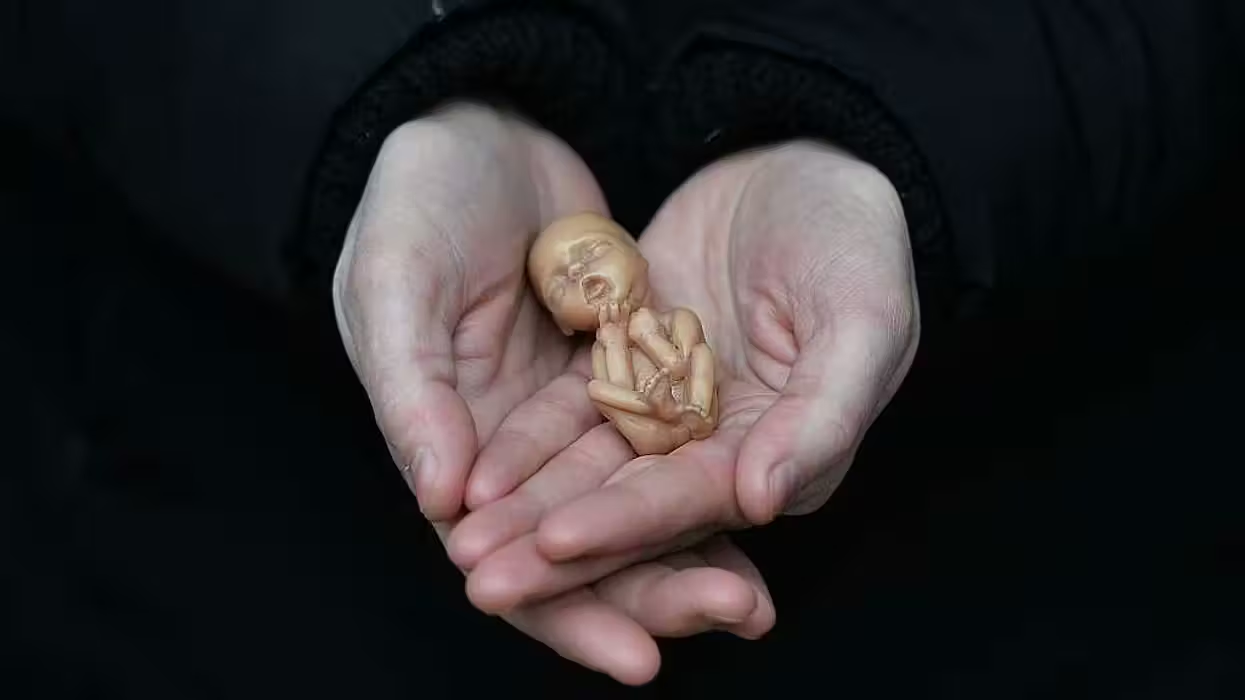
© 2025 Blaze Media LLC. All rights reserved.
End-Times Author Reveals His Responses to 3 of Critics' Biggest Claims Against the Existence of a 'Rapture' in the Bible
May 09, 2016
"The Bible wasn't written by morons."
End-times author Jeff Kinley has passionately defended his belief in the biblical concept of a pre-tribulation rapture — a theological event in which Christians are taken up to heaven before the events preceding the end of the world ramp up.
Kinley, author of “Wake the Bride” and an interview subject for my new book, "The Armageddon Code: One Journalist's Quest for End-Times Answers," recently appeared on The Church Boys podcast to respond to three of the major arguments that have been waged against the aforementioned rapture theory.
"[The rapture] refers to the event where Jesus Christ returns to earth in the air to rescue his bride to take her to heaven with him," Kinley explained. "Before God then unleashes his wrath during a time we call the seven-year tribulation period."
The author said that he believes that the rapture has been mishandled in popular culture due to awkward depictions in films as well as some faith leaders' decisions to "take advantage of peoples' fears."
Listen to Kinley react to three of the biggest critiques of rapture theology below:
"It has been sensationalized. It has been misrepresented," Kinley continued. "There's been a lot of speculation [and date-setting]. They just keep updating their calendars."
While he maintains that the Bible discusses and prophesies a future rapture event, others have disagreed fervently, with representatives from all sides hashing out their views in "The Armageddon Code." Kinley shared just a few of his arguments in favor of the pre-tribulation rapture during his interview with The Church Boys.
When presented with the first critique — that the rapture isn't overtly spelled out in the Book of Revelation, Kinley pushed back, arguing that Christians must look at all of scripture and not just some of it.
"With Revelation, what we do see and what we don't see are two different things," he said, noting that the Christian church is absent from chapters four through 18 — the verses that discuss tribulation and strife on Earth and are believed by many to be unfulfilled prophecy — but that the church returns in chapter 19 before the close of the book.
Kinley continued, "A portrayal of the book of revelation is that the church is absent through that [tribulation]."
Kinley believes that the rapture will be a moment in which many non-believers become Christians after realizing, following believers' disappearance, that the "Christians have been right all along."
The Bible expert then went on to confront a second major critique of rapture theory: the idea that a pre-tribulaiton rapture has only been prevalent since the 1800s, and that it had no place or prevalence in Christian theology before that time.
"It's become popular to criticize the rapture," Kinley said. "The question is not when it has become popular in our culture, but 'Does the Bible actually teach it?'"
The third critique that Kinley tackled is the notion that 1 Thessalonians 4, which is widely seen by some Christians as speaking of a pre-tribulation rapture, isn't discussing such a prospect at all.
"If you approach a passage looking at it in its literal, grammatical, historical, contextual context there then you come to certain conclusions, because the Bible wasn't written by morons," he said. "When you look at that passage in 1 Thessalonians 4, the main verb there in verse 17 is the word 'caught up.'"
Kinley argued that "harpazo," the Greek word in that verse, means "caught up," explaining that one must explore the meaning and context of that word. His conclusions — like many others in the prophecy realm — is that the verse is explaining a rapture event.
As TheBlaze previously reported, 36 percent of U.S. Protestant pastors agreed with Kinley in a poll commissioned by Charisma House publishers for "The Armageddon Code."
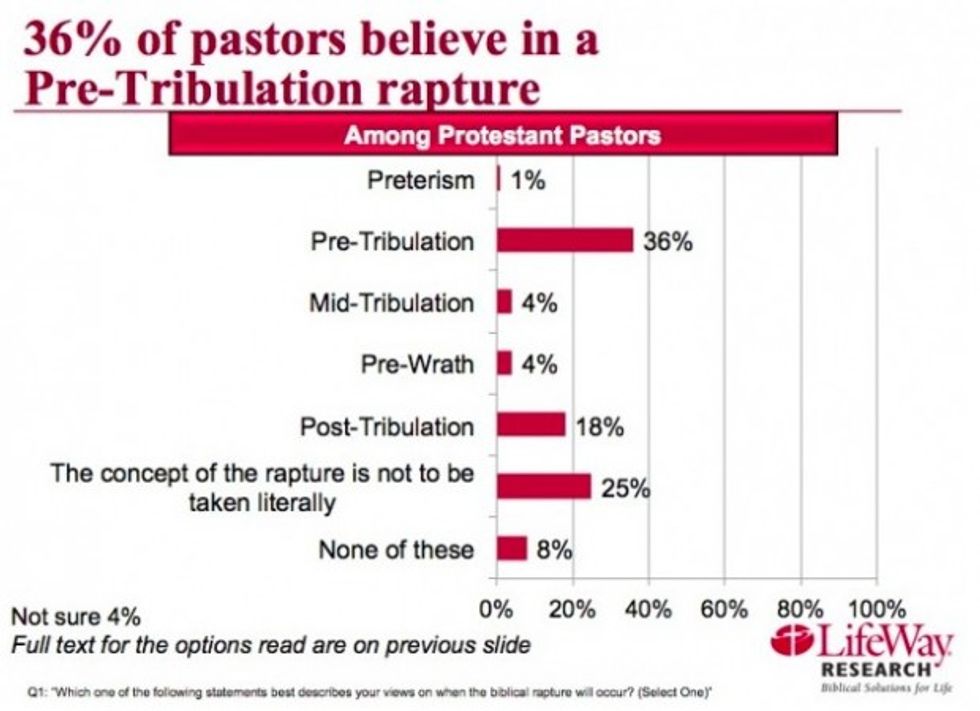
One thousand Protestant pastors, ministers and priests were surveyed in January of this year based on a random sample of all Protestant churches in the U.S. The faith leaders were each asked the following question: “Which one of the following statements best describes your views on when the biblical rapture will occur?” Their options were as follows:
- The rapture has already occurred (a view associated with Preterism)
- Christians will be taken up before the tribulation period that precedes the Second Coming (often called the pre-Trib view)
- Christians will be taken up in the middle of the tribulation period that precedes the Second Coming (often called the mid-Trib view)
- Christians will be taken up before the great wrath of God is poured out late in the tribulation period that precedes the Second Coming (often called the pre-wrath view)
- The rapture and the Second Coming are describing events that will unfold simultaneously or close together at the end of the tribulation (often called the post-Trib view)
- The concept of the rapture is not to be taken literally
- None of these
- Not sure
Overall, 36 percent of pastors — the largest proportion by far — aligned themselves with the pre-tribulation view, with the second largest proportion (25 percent) saying that “the concept of the rapture is not to be taken literally.” An additional 18 percent aligned themselves with the post-tribulation belief that the rapture and the second coming of Christ are essentially one in the same.
Read more about the poll here and learn about the broader end-times debate in "The Armageddon Code."
--
Follow the author of this story on Twitter and Facebook:
Want to leave a tip?
We answer to you. Help keep our content free of advertisers and big tech censorship by leaving a tip today.
Want to join the conversation?
Already a subscriber?
Billy Hallowell is a digital TV host and interviewer for Faithwire and CBN News and the co-host of CBN’s "Quick Start Podcast."
Billy Hallowell
Billy Hallowell is a digital TV host and interviewer for Faithwire and CBN News and the co-host of CBN’s "Quick Start Podcast."
more stories
Sign up for the Blaze newsletter
By signing up, you agree to our Privacy Policy and Terms of Use, and agree to receive content that may sometimes include advertisements. You may opt out at any time.
Related Content
© 2025 Blaze Media LLC. All rights reserved.
Get the stories that matter most delivered directly to your inbox.
By signing up, you agree to our Privacy Policy and Terms of Use, and agree to receive content that may sometimes include advertisements. You may opt out at any time.


